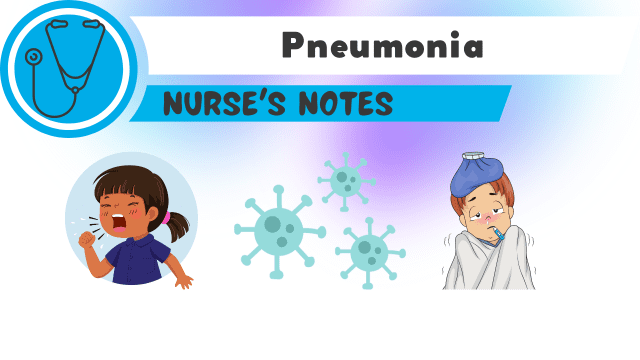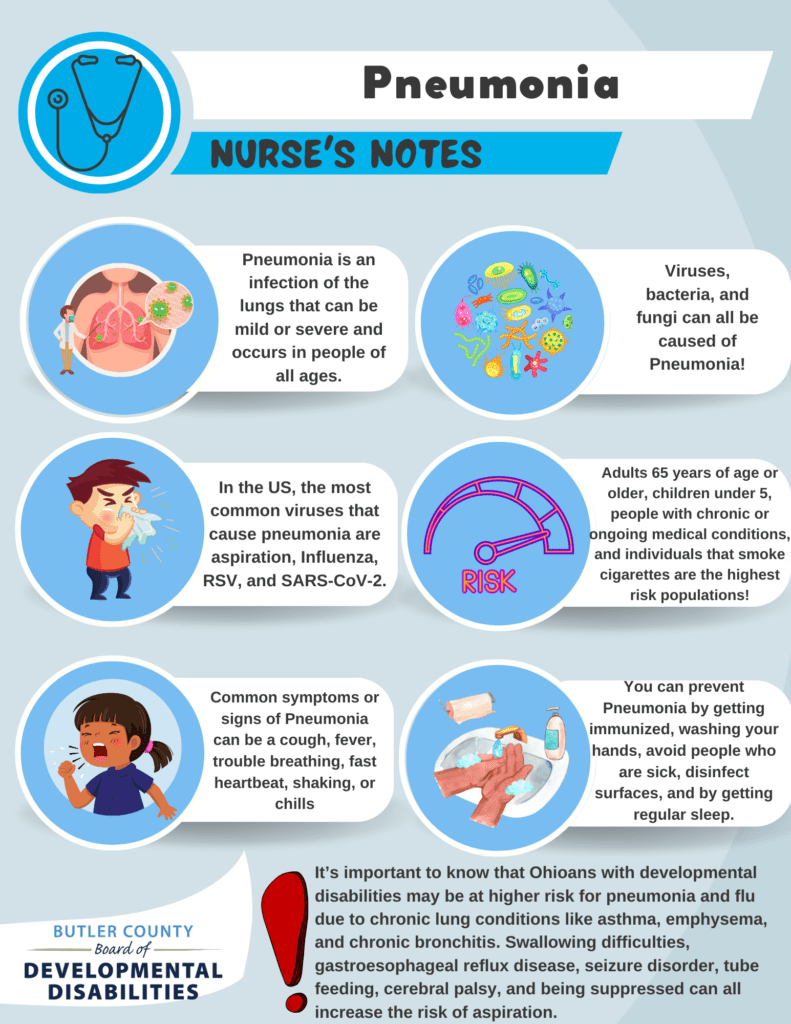
Nurse’s Notes: Pneumonia
Every 3 months, our staff nurses share important health updates. This month, our nurses are talking about Pneumonia.
Pneumonia is an infection of the lungs that can be mild or severe and occurs in people of all ages.
What Causes Pneumonia?
- Viruses
- Bacteria
- Fungi
In the US, the most common viruses that cause pneumonia are aspiration, which occurs when someone accidentally inhales food particles into the airway, Influenza, Respiratory syncytial virus or RSV, and SARS-CoV-2, which is the virus that causes COVID-19.
Who is at Risk?
- Adults 65 years of age or older
- Children under 5
- People who have chronic or ongoing medical conditions
- Individuals that smoke cigarettes
It’s important to know that Ohioans with developmental disabilities may be at higher risk for pneumonia and flu due to chronic lung conditions like asthma, emphysema, and chronic bronchitis. Swallowing difficulties, gastroesophageal reflux disease, seizure disorder, tube feeding, cerebral palsy, and being suppressed can all increase the risk of aspiration.
What are the Common Signs and Symptoms of Pneumonia?
- Cough
- Fever
- Trouble breathing
- Fast heartbeat
- Shaking or chills
What are Some Ways to Prevent Pneumonia?
- Getting immunized. There are immunizations to help prevent infection by some of the viruses and bacteria that can cause pneumonia. Some of these immunizations include:
- COVID-19
- Influenza
- Measles
- Pertussis
- Pneumococcal
- RSV
- Varicella (chickenpox)
- Washing your hands regularly.
- Avoid people who are sick and stay away from others if you are sick.
- Disinfecting surfaces that are touched a lot.
- Coughing or sneezing into a tissue or into your elbow or sleeve.
- Get regular sleep and reduce stress.
Be sure to look at the CDC factsheet about immunizations and potential side effects.
If you are experiencing symptoms of pneumonia or are caring for someone with potential symptom, call a nurse, doctor, or get assistance immediately. Treatment is most effective when started early. Viral pneumonia can sometimes be treated by antivirals and treating symptoms. Bacterial pneumonia is often treated with antibiotics.

Resources
- Centers for Disease Control- www.cdc.org
- Department of Developmental Disabilities- www.dodd.ohio.gov
